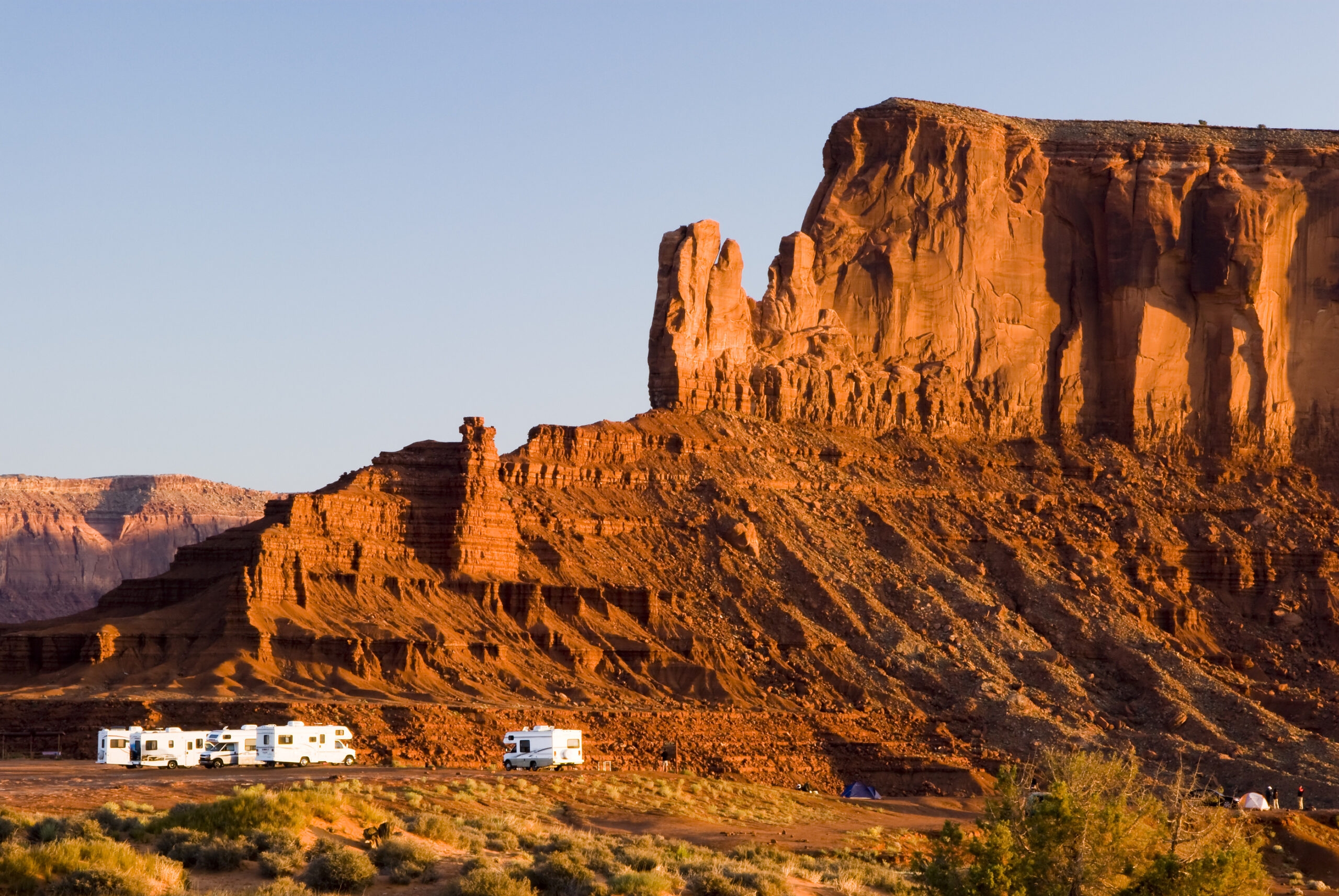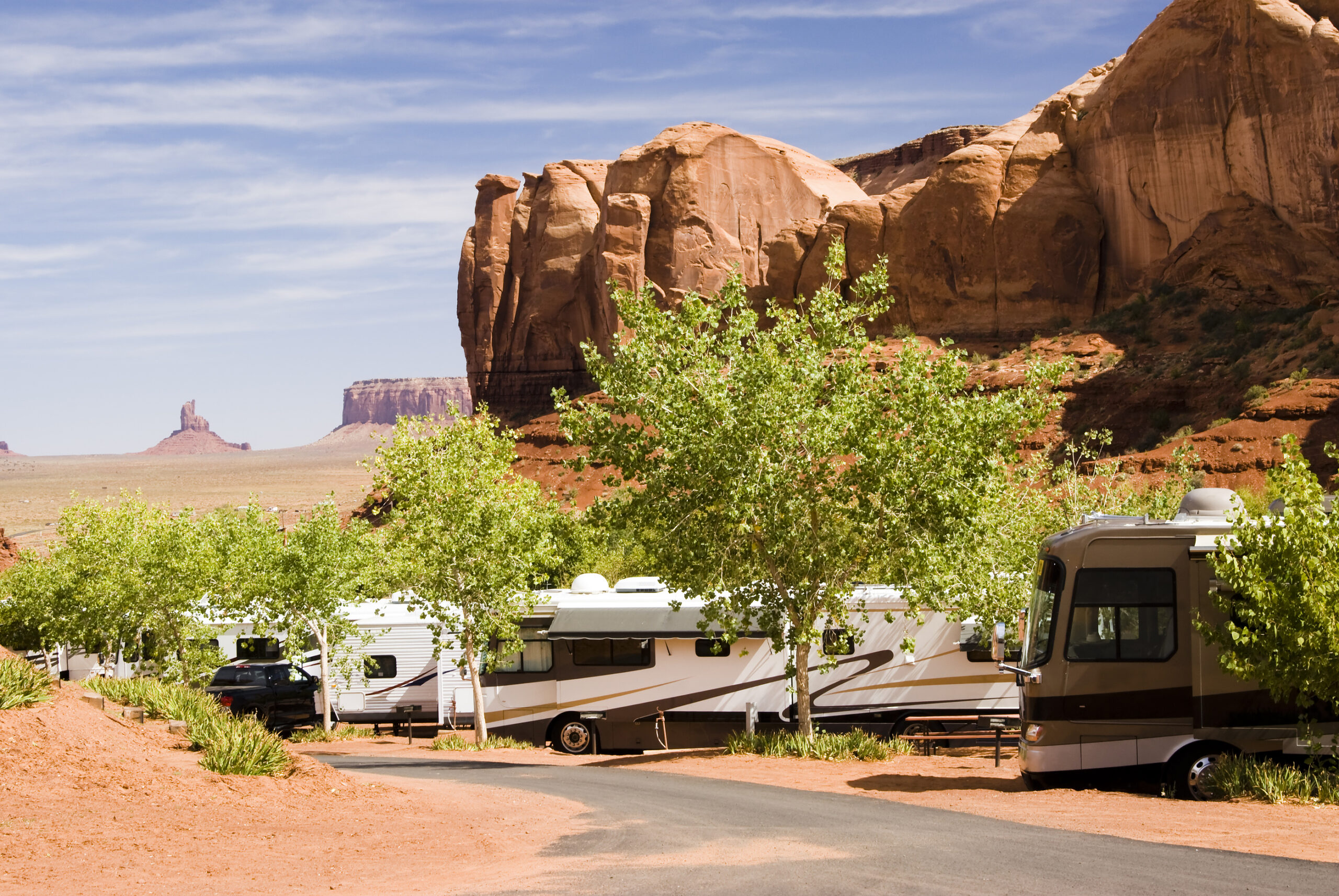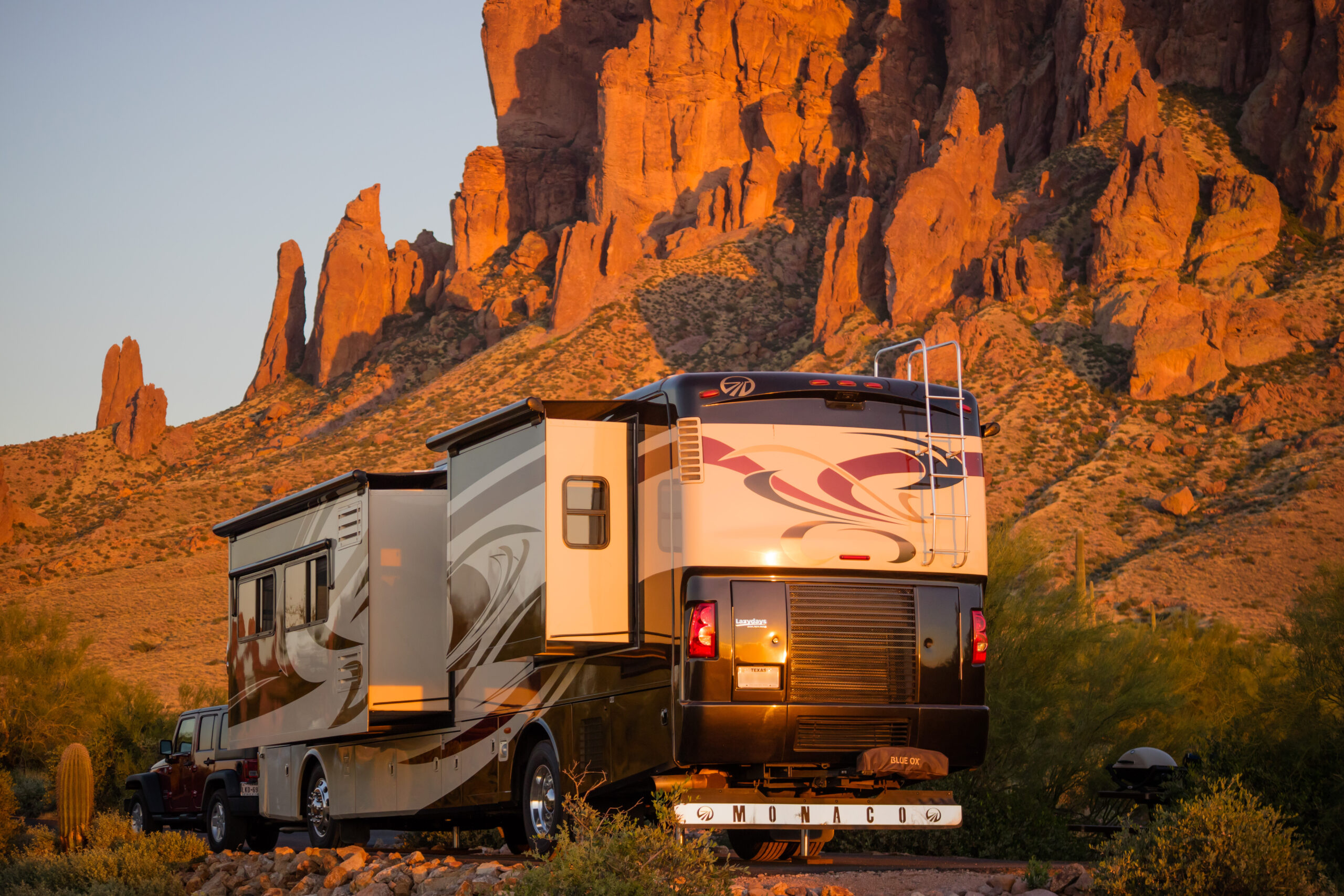Long-term camping has become increasingly popular in Arizona, attracting campers seeking to immerse themselves in the state’s ideal climate and picturesque locations.
For campground owners, this trend presents both opportunities and challenges.
In this article, we will explore the benefits of long-term camping for both campers and campground owners, as well as the key challenges that come with managing long-term campers.
We will also provide tips for campground owners looking to attract and retain long-term campers, from offering amenities to building a sense of community.
What is Long-Term Camping?
Long-Term Camping is the practice of staying at a campsite for an extended period, allowing campers to immerse themselves in outdoor living, explore nature, and engage in various recreational opportunities and adventure activities.
By choosing to embrace long-term camping, individuals open themselves up to a multifaceted experience that goes beyond just a short-lived getaway. In this form of outdoor living, campers have the chance to develop a deep connection with the environment, witness the rhythm of nature firsthand, and witness the changing landscapes over an extended period.
The slow pace of long-term camping allows for a deeper appreciation of the small wonders that each day in the wilderness brings, and it offers a sense of tranquility far removed from the hustle and bustle of everyday life.
Why is Long-Term Camping Popular in Arizona?
Arizona, known for its breathtaking landscapes and favorable climate, has become a top destination for long-term campers. This trend presents a unique opportunity for campground owners to attract a growing segment of travelers looking for extended stays.
Here’s why long-term camping is gaining popularity in the Grand Canyon State and how campground owners can capitalize on this trend.
Mild Climate and Scenic Beauty
Arizona’s climate is a significant draw for long-term campers. With mild winters and ample sunshine year-round, it offers an ideal escape from colder regions.
The state’s diverse landscapes, from the iconic Grand Canyon to the serene deserts and vibrant forests, provide endless opportunities for outdoor activities. Campers can explore hiking trails, engage in bird watching, or simply relax and enjoy the stunning scenery.
Cost-Effective Living
The rising cost of living has led many to seek affordable alternatives, and long-term camping fits the bill perfectly. Arizona’s campgrounds often offer discounted rates for extended stays, making it an attractive option for retirees, remote workers, and budget-conscious travelers.
By providing amenities such as reliable Wi-Fi, laundry facilities, and communal spaces, campground owners can enhance the appeal of long-term camping.
Adventure and Exploration

Arizona is a gateway to numerous adventures. From exploring ancient ruins and historic sites to participating in local festivals and cultural events, there is always something to do.
Long-term campers appreciate the ability to take their time and fully immerse themselves in the local culture and attractions. Campground owners can provide information and resources about local attractions and events, enhancing the overall experience for long-term guests.
Flexible Lifestyle
For many, long-term camping offers the flexibility to live life on their own terms. Whether it’s retirees embracing a nomadic lifestyle, digital nomads working remotely, or families looking for a unique way to travel, Arizona’s campgrounds can cater to a variety of needs.
The popularity of long-term camping in Arizona is a testament to the state’s natural beauty, favorable climate, and the growing appeal of an affordable, community-oriented, and flexible lifestyle.
For campgrounds, embracing this trend not only boosts occupancy rates but also fosters a loyal customer base, ensuring sustained success in the competitive campground industry.
What are the Benefits of Long-Term Camping for Campground Owners?
Long-term camping offers a range of advantages for campground owners. Here’s a closer look at these benefits and how to capitalize on this trend.
Steady Revenue Stream
One of the most significant benefits of long-term camping is the steady revenue it generates. Unlike short-term stays, which can fluctuate with the seasons, long-term reservations provide a consistent income.
Campground owners can offer discounted rates for extended stays, making it more attractive for campers to commit to longer periods. This not only ensures a stable cash flow but also reduces the effort and cost associated with frequent turnover.
Improved Occupancy Rates
Filling sites with long-term campers can significantly boost occupancy rates, especially during the off-season. Many long-term campers, such as retirees and digital nomads, prefer to stay in one place for months at a time, ensuring that sites remain occupied year-round.
This can help campgrounds maintain high occupancy levels even when short-term tourist traffic is low, leading to more predictable and sustainable operations.
Lower Maintenance and Operational Costs
Long-term campers tend to be lower maintenance compared to short-term guests. They are more likely to take care of their site, reducing wear and tear on facilities. Additionally, with fewer check-ins and check-outs, campground staff can focus on other important tasks, improving overall efficiency.
Enhanced Community Atmosphere
Long-term campers often form strong bonds with each other and the campground staff, creating a vibrant and supportive community. This sense of community can enhance the overall camping experience, leading to higher customer satisfaction and increased word-of-mouth referrals.
Better Forecasting and Planning
With a stable base of long-term campers, campground owners can better forecast occupancy and revenue. This allows for more accurate budgeting and resource allocation, leading to more efficient and effective management.
Understanding the needs and preferences of long-term campers also enables owners to tailor their services and amenities, enhancing the overall appeal of the campground.
Increased Customer Loyalty
Long-term campers are more likely to return and recommend the campground to others. By providing excellent service and creating a welcoming environment, campground owners can build a loyal customer base. Offering loyalty programs, personalized services, and incentives for repeat stays can further strengthen these relationships, ensuring long-term success.
What are the Challenges of Long-Term Camping for Campground Owners?
While long-term camping offers numerous benefits for campground owners in Arizona, it also presents unique challenges. Understanding these challenges is crucial for campground entrepreneurs to effectively attract and manage long-term travelers.
Here’s a closer look at the potential hurdles and strategies to overcome them.
Managing Wear and Tear
Long-term campers occupy sites for extended periods, which can lead to increased wear and tear on facilities and infrastructure. Frequent use of utilities, such as water, electricity, and sewage systems, can strain campground resources.
To mitigate this, campground owners should invest in durable materials, regular maintenance schedules, and upgrade infrastructure as needed. Implementing policies that encourage campers to conserve resources can also help manage the impact on facilities.
Balancing Short-Term and Long-Term Guests
Balancing the needs of short-term and long-term campers can be challenging. Short-term guests often seek a dynamic, vacation-like experience, while long-term campers may prefer a stable and quieter environment.
Creating designated areas for long-term campers can help manage these differing needs. Additionally, offering amenities and activities tailored to both groups ensures a harmonious coexistence and enhances overall guest satisfaction.
Ensuring Compliance with Local Regulations
Long-term camping can blur the lines between recreational camping and residential use, potentially leading to regulatory challenges. Campground owners must stay informed about local zoning laws, health and safety regulations, and any restrictions on long-term stays.
Working closely with local authorities and seeking legal counsel can help ensure compliance and avoid potential fines or legal issues.
Financial Management and Pricing Strategies
Determining the right pricing strategy for long-term stays can be complex. Offering discounts for extended stays can attract long-term campers, but it’s essential to ensure that the rates still cover the costs and generate profit.
Campground owners should analyze operational costs, market demand, and competitor pricing to develop a balanced and competitive pricing strategy. Regularly reviewing and adjusting rates based on occupancy and financial performance is also crucial.
Addressing Camper Conflicts
Conflicts can arise when people live in close proximity for extended periods. Whether it’s noise complaints, disputes over shared spaces, or differing lifestyle preferences, managing camper conflicts is an inevitable challenge.
Establishing clear campground rules and a transparent conflict resolution process can help address issues promptly and fairly. Training staff to handle disputes effectively and promoting a culture of respect and consideration among campers can also minimize conflicts.
Embracing these challenges and finding effective solutions will not only attract more long-term travelers but also ensure a successful and sustainable campground operation in Arizona’s competitive landscape.
Tips for Campground Owners to Attract and Retain Long-Term Campers

1. Offer Competitive Pricing and Discounts
Long-term campers often look for value and affordability. Offering competitive pricing for extended stays can make your campground more attractive. Consider providing tiered discounts based on the length of stay, such as weekly, monthly, and seasonal rates.
Special promotions during off-peak seasons can also help fill your sites year-round. Ensure that your pricing structure is transparent and easy to understand to build trust with potential long-term guests.
2. Enhance Site Amenities
Long-term campers seek comfort and convenience. Enhance your sites with essential amenities such as full hookups, reliable Wi-Fi, laundry facilities, and spacious lots. Adding extra perks like picnic tables, fire pits, and storage options can make a significant difference.
Regular maintenance and cleanliness are crucial to keeping long-term campers satisfied and encouraging positive reviews and referrals.
3. Create a Sense of Community
A strong sense of community is a major draw for long-term campers. Organize regular social events such as potlucks, game nights, and group outings. Establish communal areas where campers can gather and interact, like clubhouses, picnic areas, and recreational facilities.
Encouraging a welcoming and friendly atmosphere can foster connections among campers and create a loyal customer base.
4. Provide Reliable and High-Speed Internet
Many long-term campers, including remote workers and digital nomads, rely on stable and fast internet connectivity. Investing in a high-quality internet infrastructure can be a significant selling point.
Ensure that Wi-Fi is accessible throughout the campground and consider offering different plans to cater to various needs. This will not only attract more long-term campers but also enhance their overall experience.
5. Cater to Diverse Camper Needs
Long-term campers come from various backgrounds, including retirees, families, and digital nomads. Offering a variety of accommodation options, such as RV sites, cabins, and tent sites, can appeal to a broader audience.
Tailor your amenities and services to meet the diverse needs of your campers. For instance, create quiet zones for retirees, kid-friendly areas for families, and co-working spaces for remote workers.
6. Ensure Safety and Security
Safety and security are paramount for long-term campers. Implement measures such as well-lit pathways, secure access points, and regular patrols to ensure a safe environment. Providing clear information about emergency procedures and having a responsive staff on hand can enhance campers’ peace of mind. A safe and secure campground will encourage long-term campers to stay longer and return in the future.
7. Highlight Local Attractions and Activities
Arizona boasts a wealth of natural beauty and attractions. Promote local attractions, such as national parks, hiking trails, and cultural sites, to your campers. Organize guided tours, excursions, and partnerships with local businesses to provide unique experiences.
Offering detailed information about nearby attractions and activities can help long-term campers fully enjoy their stay and extend their visits.
8. Collect and Act on Feedback
Feedback from long-term campers can provide valuable insights into improving your campground. Regularly collect feedback through surveys, suggestion boxes, and direct conversations. Act on this feedback to address any issues and make necessary improvements. Demonstrating that you value and respond to campers’ input can enhance their satisfaction and loyalty.
9. Leverage Digital Marketing
Use digital marketing strategies to reach potential long-term campers.
Optimize your website for search engines, ensuring it’s user-friendly and informative. Highlight the amenities, pricing, and unique features of your campground.
Utilize social media platforms to share updates, engage with your audience, and showcase positive reviews and testimonials.
Investing in targeted online advertising can also help attract long-term campers looking for their next destination.
To help RV parks create high-quality websites, RoverPass created a solution called Premium Website Builder. Our experts can help you create a visually appealing, user-friendly website that effectively communicates your eco-friendly ethos. With SEO optimization and content creation skills, we can ensure your site ranks well in search engines, making it easier for potential long-term camping guests to find you.
Additionally, the premium website can be directly integrated with our campground reservation software, effectively serving as your 24/7 sales team.
Frequently Asked Questions
- What are the benefits of long-term camping in Arizona?
Long-term camping in Arizona allows campers to fully immerse themselves in nature, experience different seasons and landscapes, and save money compared to short-term stays.
- What should campground owners consider when accommodating long-term campers in Arizona?
Campground owners should consider offering amenities such as laundry facilities, reliable Wi-Fi, and long-term storage options to make long-term camping more comfortable for their guests.
- How can campground owners attract long-term campers in Arizona?
Campground owners can attract long-term campers by offering discounted rates for longer stays, promoting the natural beauty and activities of the surrounding area, and providing excellent customer service.
- What are some tips for maintaining a long-term camping site in Arizona?
Campground owners should regularly check and maintain water, electric, and sewage systems, properly dispose of trash and waste, and ensure the safety and cleanliness of the grounds for their long-term campers.
Keep reading our blog for more insights and tips to help your campground thrive!






